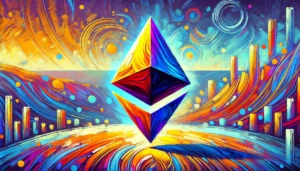Upland, a blockchain-based real estate collecting and trading game, has made waves in the world of cryptocurrency with its recent announcement of a $7 million Series A extension raise. The funding round was led by EOS Network Ventures, marking the fund’s first foray into crypto gaming. This extension of their Series A comes on the heels of an initial raise of $18 million in 2021. The infusion of capital into Upland is geared towards enhancing the features of their location-based game.
Upland details the use of its series A funding
Upland allows players to acquire digital representations of real-world locations on a virtual map. In addition to game improvements, the company plans to ramp up its marketing efforts, enable third-party developer tools, and introduce an Ethereum token linked to its existing in-game utility token. Upland’s co-CEO and co-founder, Dirk Lueth, emphasized the vitality of the metaverse in his statement, asserting that it’s far from a dying concept. The metaverse, often associated with virtual and immersive online worlds, has garnered significant attention in recent years.
Upland’s origin can be traced back to the inspiration drawn from the iconic board game Monopoly. In 2019, it began as a property trading game where players could buy and sell digital versions of actual real-world properties, offering a unique twist on traditional gaming. Over time, Upland has expanded its offerings, incorporating elements such as cafes, treasure hunting, vehicles, and even plans to host fashion week events in the future. With over 3 million registered players and an impressive count of approximately 30,000 daily active users, Upland’s popularity is on the rise.
Moreover, the company has secured partnerships with prominent sports organizations, including FIFA and the NFL Players Association. These collaborations have coincided with Upland’s efforts to add new locations in regions like the United States, Latin America, and Europe. Upland’s geographic strategy is driven by localized interests. Lueth pointed to a recent partnership with ON1 Force, a project that offers anime-style profile picture (PFP) NFTs, which facilitated Upland’s entry into the Japanese market.
This expansion was marked by the addition of Tokyo to the game’s virtual map. Despite the recent decrease in buzz around the metaverse concept, Dirk Lueth remains unfazed. He downplays the diminishing attention, asserting that the concept is very much alive and continues to shape the future of the internet. He regards it as “the paradigm of how things will happen in the future.” Lueth acknowledges that while some speculators may have exited the scene, there are still signs of ongoing development in the metaverse space.
Long term vision of the company in the blockchain space
Dirk Lueth specifically mentions the Open Metaverse Alliance of Web3 (OMA3), of which he serves as the chairperson. OMA3 is a consortium that aims to establish metaverse standards and includes major players in blockchain, NFTs, and the metaverse, alongside Upland. The choice of EOS as the underlying blockchain for Upland’s operations has been a key factor in its success. Despite EOS losing some prominence over the years, it remains the foundation of Upland’s ecosystem. EOS currently ranks 23rd on DefiLlama for total value locked (TVL), amounting to $69 million.
The EOS token itself is positioned at 60th place in total market capitalization among cryptocurrencies, according to CoinGecko. However, its value has not reached its all-time high for over five years. Dirk Lueth defends the choice of EOS, explaining that it was the most practical blockchain option when Upland was founded in 2018. Ethereum’s gas fees were a deterrent, making EOS the more attractive choice. According to Lueth, the technical capabilities of EOS have enabled Upland to mint a remarkable 80 NFTs per second. The recent investment from EOS Network Ventures demonstrates continued support for the ecosystem.
The Series A extension not only welcomed EOS Network Ventures but also saw participation from existing investors like Animoca Brands and C3 Venture Capital. The funds raised in this round will facilitate Upland’s plans to make its in-game Spark token tradable on the Ethereum network, referred to as Sparklet. This strategic move aims to increase Upland’s visibility in the broader cryptocurrency market. A significant factor that influenced this decision was the favorable court ruling received by Ripple, a well-known cryptocurrency company.
Additionally, Upland’s approach of not selling its token to investors or its team helps mitigate potential securities-related scrutiny from regulatory bodies like the SEC. In contrast to the prevalent image of the fast-paced and disruptive nature of the crypto industry, Dirk Lueth emphasizes a more long-term perspective. He believes that gaming will play a pivotal role in driving broader adoption of blockchain and cryptocurrency. However, he also acknowledges that this transition won’t happen overnight. Upland’s journey in the metaverse and blockchain gaming space reflects the evolving landscape of digital assets and the growing interest in location-based gaming experiences.





